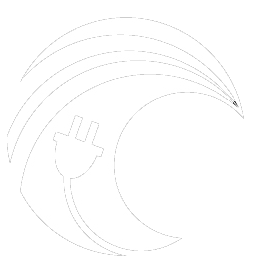Congratulations to Trent Dillon, Ali Trueworthy and Katherine Van Ness, three PMEC students chosen as ORISE WPTO-MHK Graduate Student Research Program fellows for 2021. The U.S. Department of Energy’s ORISE fellowship partners high performing graduate students with national labs and private industry to focus on early-stage research and development. Ultimately their goal is to strengthen the body of scientific and engineering knowledge and develop new technologies that increase U.S. marine and hydrokinetic (MHK) energy generation. Read more about their fellowship projects below.
Trent Dillon (UW & the Makah Tribal Council)
The Makah are an indigenous people with a unique connection to the sea. During the 1855 Treaty of Neah Bay negotiations Caqawix, a Makah Chief, famously told Euro-American settlers, “I want the sea. That is my country.” Caqawix’s words and the Tribe’s continued sovereignty in Neah Bay reflect the priorities of a resilient people who continue to control and embrace marine resources, as they have for thousands of years. Due to their remote location in the rugged northwest corner of the Olympic Peninsula, the Tribe faces seasonal shortages of electricity and freshwater, and are at risk of experiencing a severe (9.0 magnitude) earthquake and subsequent tsunami. Approximately 60% of the Neah Bay population lies within the tsunami inundation zone. Yet efforts to relocate and establish housing in safer terrains have been difficult and prolonged, in part due to the aforementioned freshwater shortages. The Tribe is adjacent to powerful ocean waves that, if harnessed for electricity generation and desalination, may be an important contributor to electricity and freshwater resilience. In my ORISE application, I proposed to investigate the benefits of harnessing wave energy for the Makah by adapting techno-economic optimization software I developed for wave-powered ocean observing and utilizing best practices for co-produced knowledge and community engagement. Through the fellowship, the Makah Ocean Policy Working Group and I will aim to (1) make recommendations on the possible size, location and number of wave and renewable energy assets, and (2) create a lasting relationship and a foundation of mutual literacy that can be built upon by the Pacific Marine Energy Center to take the next recommended step in utilizing wave energy to improve the coastal resilience of the Makah.
Ali Trueworthy (OSU & PNNL)
In December of 2020 I defended my Master’s of Science in mechanical engineering at Oregon State University with Professor Bryony DuPont. I conducted research on design and assessment methods for wave energy converters with researchers from the WaveSPARC project at the National Renewable Energy Laboratory and Sandia National Labs. Through that work, I saw a need to better integrate climate change and the associated ecological challenges into renewable energy system design. ORISE is enabling me to begin to determine what that integration could look like. I will be testing methods of systems engineering, ecological engineering, and community- driven approaches for their usability in wave energy system design. Working with researchers at Pacific Northwest National Laboratory, I will research community-resilience and climate change related metrics for assessment of marine energy devices and use the metrics to assess wave energy converter concepts and gauge the effectiveness of each design approach. This research could lead to new design approaches and improved methods of addressing the climate crisis through renewable energy systems design. ORISE is enabling me to test these design approaches through my own design work.
Katherine Van Ness (UW & NREL)
Blade pitch control strategies for marine current turbines have the potential to mitigate structural loading, bringing down equipment costs and extending turbine lifespan. However, it can be difficult for turbine developers to balance the costs and benefits of a simple, yet overdesigned, turbine with fixed-pitch blades versus the load-reductions possible with a variable-pitch mechanism. Our collaboration with the National Renewable Energy Laboratory (NREL) aims to provide (1) guidance on the trade-offs associated with blade pitch control strategies and (2) an open-source code, validated for smaller scale current turbines relevant to Blue Economy markets, that can be used as a starting point for technology developers to model control trade-offs for their own technology. This collaboration will leverage NREL’s expertise in state-of-the-art software development for wind and water power engineering to develop a model simulation of the experimental pitch control studies conducted at the University of Washington. These laboratory-scale experiments and simulations will investigate both active pitch control, using motors to actuate changes in pitch, and passive pitch control, using hydroelastic blades that deform passively in response to increased loading in high flow rates.
Find out more about the Marine and Hydrokinetic Graduate Student Research Program




